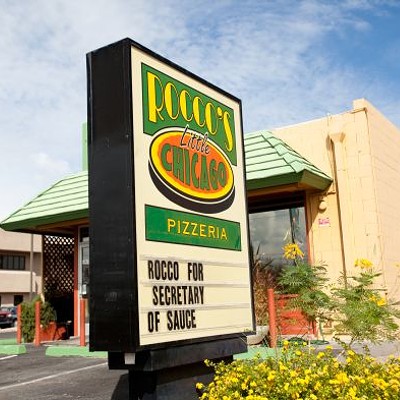"A family member had a health problem 10 years ago," Jarvis recalls, "and I used Information and Referral to find an organization that could help. ... I don't know what I would have done without them."
A 1968 Arizona Daily Star article about the agency, then known as the Tucson Community Council, said: "(It) can provide the answers for information and guidance to individuals and their families on resources available for meeting health, welfare and related needs and to make referrals to the appropriate agencies."
Four decades later, Information and Referral remains a one-stop shop for pointing people toward agencies which can assist them. Along with publishing a comprehensive catalogue listing these agencies, I&R fields up to 6,000 calls monthly.
Information and Referral's around-the-clock operators handle inquiries about who to contact regarding food or housing assistance, senior issues, mental-health problems and hundreds of other subjects.
"This is an organization unlike any other in the city," Jarvis says. "All through the years, I've relied on them for information I needed on different organizations, and I've always gotten the answers I needed."
Stricken by the West Nile virus last year, Jarvis also founded a support group to assist those with the disease or encephalitis. "When I got (the disease), there was nowhere to go," but now people can find out about her group from Information and Referral Services.
That contact, along with all the other assistance the organization provides, may be gone by the middle of next month. On Tuesday, April 3, I&R plans to submit petitions to the City Council asking for funding to remain open both through June, and through the longterm.
"If the council says no," declares executive director, Leslie Ann Williams, "we're closing our doors."
The funding crisis has occurred because for many years, Information and Referral was subsidizing its call center with funds obtained for other programs it was operating. A few years ago, the group decided to return to its original call-center focus, handing off its other programs to various agencies.
But when I&R recently sought city and county funding for the call center through a competitive process among social-service agencies, the county provided less than half the requested amount--and the city came up with nothing.
"We're not a social-service agency," Williams says, explaining why she thinks her organization should be treated differently. Williams is asking both the city and county to guarantee funding by including I&R as a line item in their yearly budgets.
That is how about 20 groups are presently handled by City Hall. These range from the Women's Commission, which receives more than $50,000, to the Tucson-Pima Arts Council, which gets almost $700,000.
Since 76 percent of I&R's calls come from city residents, Williams is asking the city and the county to together pick up at least 50 percent of the organization's $1 million annual budget. How they split that amount, she says, is up to them.
To supplement the money from the state, as well as grant money, that I&R presently receives, Williams has sought federal funds, but she won't know for a while if they are forthcoming. In the meantime, without a long-term commitment from the city and the county, Williams says stop-gap funding to keep the call center open until July doesn't make sense. "It's throwing good money after bad," she says.
The state of Arizona has been working to implement a 211 telephone number that would provide callers with services similar to those offered by Information and Referral, but Williams says this option is at least a year away. Plus, she warns of this program: "The state's not planning to fund 211."
City Councilwoman Carol West thinks there are alternatives, such as the 792-CITY phone number, which deals with some questions. But this system, which is presently only available weekdays from 8 a.m. to 5 p.m., took 14 hours to respond in a friendly fashion to an early evening inquiry. On the other hand, I&R's amiable operator answered the question in one minute.
West also thinks Information and Referral needs to coordinate better with other agencies and do more fundraising. Because of those reasons, she opposes the group's request.
Councilwoman Karin Uhlich concurs, pointing out that the Volunteer Center of Southern Arizona may pick up some of the calls. Regarding Information and Referral, Uhlich says: "There's no plan for getting on solid (financial) footing. ... I don't know that $100,000 would solve much."
West says: "Trying to get money this way was unrealistic. ... What should we cut (from the budget) so we can come up with that money? We should instead be funding sidewalks, street maintenance and parks--things that people want."
Acknowledging that it may sound coldhearted, West concludes: "I won't support the funding under any circumstances. There are all kinds of people asking for all kinds of things, and there just isn't the money."












